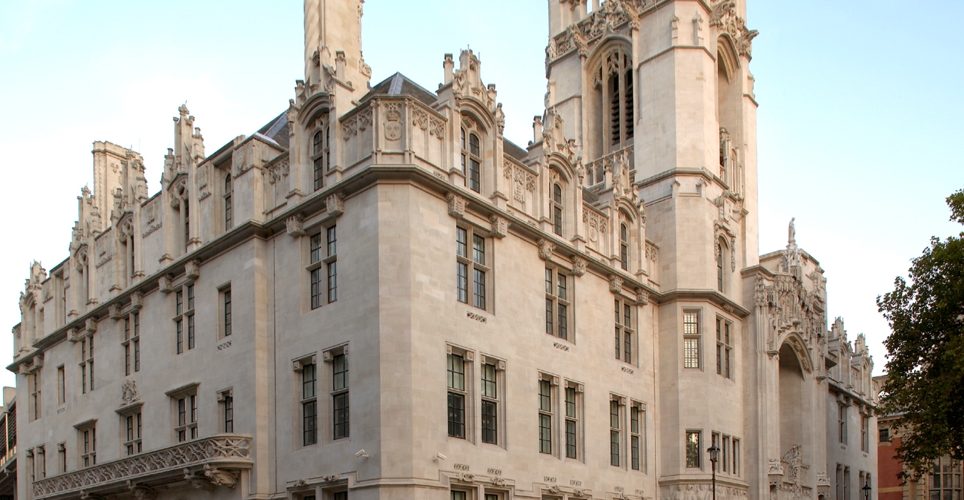Summary
Download a PDF version of this paper
This paper makes a simple argument: the judgment of the Supreme Court this year in R (Miller) v The Prime Minister was indifferent to the will of Parliament. Whatever the merits or demerits of the court’s decision otherwise, it is impossible to reconcile it with the principle of Parliamentary sovereignty as properly defined.
Each House of Parliament, and Parliament as whole, enjoys ‘exclusive cognisance’. It is the right of Parliament to manage its own affairs without interference from the courts or elsewhere.
The legitimate basis of prorogation in the past was not the common law. There was until this year no common law authority setting out the lawful scope of the power to prorogue. None was even remotely on the horizon. The basis, rather, was Parliament’s will – its sovereign discretion to relinquish to the government a degree of control over its own affairs. Parliament retained the power at any time to limit or revoke that control by enacting legislation (as it has done from time to time), or to withdraw confidence and refer the matter to the ultimate authority of the people.
Parliament can waive its exclusive cognisance. That waiver is itself an act of sovereign will that a court may not call into question. Exclusive cognisance can be waived explicitly, for instance by allowing an officer of the House to give evidence on its internal proceedings.
It can also be waived implicitly. The 2019 prorogation enjoyed Parliament’s implicit assent. Rather obviously so – Parliament had, and declined, the opportunity to oppose its own prorogation. The prorogation Order was made and announced on 28 August 2019. Subsequently, on 4 September, Parliament rejected a motion for an early election. Fewer than half of MPs voted to dissolve Parliament so that a new government might be formed.
The Supreme Court failed even to consider the significance of a dominant parliament – so dominant that it could dictate the conduct of treaty negotiations – passing up the opportunity to resist prorogation. It was a paradigmatic example of where, in the words of Lord Sumption in the Nicklinson case, ‘Parliamentary inaction amounts to a decision not to act.’
Nor did the Supreme Court reflect on the important parallel of Parliament’s implicit assent to the power of the courts themselves. As Lady Hale herself has said, in her response to Lord Sumption’s Reith Lectures: ‘if Parliament does not like what the courts have decided … it can always overturn it.’ Why shouldn’t the same apply to prorogation? It too is subject to statutory limitations, and whatever other limits Parliament sees fit to impose. When, as in 2019, Parliament sees fit to impose no restriction, then the prorogation falls within the legitimate boundary set by Parliament.
The Supreme Court instead sought to impose new standards for when prorogation is valid. None of them is consistent with Parliamentary sovereignty.
-
- Limitation on the power to prorogue Parliament is a ‘necessity’ – yet what necessity can compel a Parliament whose will is sovereign? What Parliament desires must trump what a court deems necessary.
- The courts must protect Parliament’s ‘ability’ to wield its legislative authority – yet that ability is itself subject to Parliament’s sovereign will to exercise it. No court may protect Parliament’s ‘abilities’ if doing so would be contrary to its will.
- Parliament has a ‘right’ to its voice on important matters – yet what need has a sovereign body of ‘rights’, when its expressed will is supreme? How could Parliament be supreme if a higher body still could define and circumscribe its rights?
The courts can only know Parliament’s will insofar as it is expressed in statute. The Supreme Court this year could not have known whether or not MPs assented to prorogation. Its judgment was indifferent to Parliament’s sovereign will, while purporting, implausibly, to defend and uphold it. There were any number of reasons why MPs on both sides of the house might have supported prorogation.
The Supreme Court’s judgment is a sorry mess. In the name of parliamentary sovereignty, a solitary concerned citizen can now persuade a court to overturn a prorogation, regardless of whether Parliament might in fact assent to it. It is regrettable and alarming that the highest UK court fell so far short of the clear, considered wisdom of the courts of first instance.
Although no British court would ever be so crude as to say it in terms, the corollary of the judgment is that encroaching on Parliament’s privileges is a bad thing when the government does it, and a fine thing when the courts do it. This judgment has made amply clear that the Supreme Court, under the present law and as currently constituted, is unfit to act as a constitutional court.







